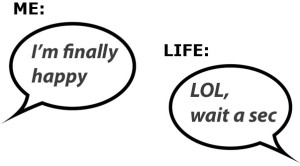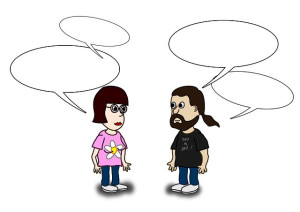 We are all born, we live, we die. And during the in between, while we are on the journey we call life, we all want 3 things. Just 3 things. 3 simple things, that are in translation not so simple.
We are all born, we live, we die. And during the in between, while we are on the journey we call life, we all want 3 things. Just 3 things. 3 simple things, that are in translation not so simple.
We want to love and be loved. Simple right? The Beatles had it right – all you need is love – is love really all that’s needed? Well, love is one part of the 3 piece equation, a big important part. But look closer and notice that the concept of love is 2-sided. Love wants to be given and also received. For one-sided unrequited love is unfulfilling and not fun at all. So we want to love and be loved by the same people.
There are some people who love their parents, but their parents don’t love them back, or not to the same level that they want. There are some who hate their parents, with parents who continue to love them unconditionally. And there is every degree of love and hate in between.
There are some people who have been married for decades yet don’t feel loved. There are some who look for love their entire lives and never find it. And every degree of intimate love to ‘settling’ in between.
There are some people who have scads of friends yet feel lonely and unloved. There are some who have a single best friend, who really ‘gets’ them. And a multitude of degrees of social love depending on personal wants and needs.
Love is not so simple to define and can be even harder to get, since it can’t be forced, to be genuine. But we all want it, in some way, shape or form, to satisfy that social longing we all have – we need other people to survive, therefore we yearn for their affection, and to give them ours.
We want to be remembered. The worse thing for any person, child, or employee is to be invisible, unnoticed, overlooked.
When I was young, my mother’s often remarked policy on children was: Children should be seen and not heard. Meaning, stand over there and try to look cute, if you’re young, and at least presentable if you’re not young, but don’t say a word and don’t interrupt adult conversation. Luckily when I was young, I didn’t know what “seen and not heard” meant conceptually; when I was older and did understand, I had learned to ignore her truisms as just noise. But the effect was a lasting impression that I carried forward in the reverse with my children. I know what it feels like to be treated as if you are an object in the room, not a living person.
Employees that are doing a steady good job day in and day out state in surveys that their top complaint is being overlooked. A kind word, a pat on the back, a mention by the boss passing their desk would go such a long way. They are unintentionally being made to feel invisible and unappreciated, even though the work these backbone employees do is critical to the overall effort.
If you ask people, most feel that they are above average. Maybe not above average in everything, but in enough that the overall package judgment is of being above average. Well, if we’re all above average, that’s a mathematical dilemma. Which is why the SATs give students 200 points just for putting their names on the paper. To bring the scores up. And when too many students felt like their scores were too low, what did the College Board do? They lowered the standards so students could feel above average with their very average scores.
We want to make a difference. Have an impact of some kind, any kind, to give meaning to our lives. That impact can be attached to a cause. Being part of something bigger than they are is important to people. How are we linked to the great universe and therefore our footprint will resonate across time and space – it’s a cosmic concept that helps some people gain meaning from living. Because without meaning, there is an empty void instead of happiness.
No we probably won’t solve a medical mystery, discover a breakthrough in science, or create a global movement – at least most of us won’t. But we still want to make a difference with our lives. Maybe that difference is in the good work that we do day to day.
Maybe that difference is in local community volunteering. Helping with some community issues – housing, the elderly, the poor – makes a big impact in the lives of recipients, which can be immediately seen.
Maybe that difference is raising good kids, who will themselves contribute productively. Inspiring, mentoring, training, teaching with our actions. Impacting just one grateful life is making a difference, in any degree.
With these three basic wants in mind, how can we communicate better with others? Lean into them and you can’t go wrong. Think about how what you want from others can best be related to one of these 3. You will be surprised at how motivating the right words, in the right frame of reference can be on behavior.
We all want the same things. We just need them presented in relatable terms, which makes everyone happy.
Comment?









